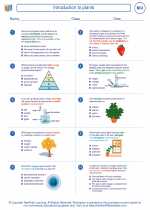Brain
The brain is a complex and vital organ that serves as the center of the nervous system in all vertebrate and most invertebrate animals. It is responsible for processing sensory information, controlling body movements, and regulating physiological functions.
Anatomy of the Brain
The human brain is comprised of several main structures, including the cerebrum, cerebellum, and brainstem. The cerebrum is the largest part of the brain and is responsible for higher brain functions such as thinking, perceiving, and voluntary movements. The cerebellum is involved in coordination and balance, while the brainstem regulates basic functions such as breathing, heart rate, and digestion.
Functions of the Brain
The brain carries out a wide range of functions, including:
- Processing sensory information from the environment
- Controlling voluntary and involuntary movements
- Regulating emotions and behavior
- Supporting cognitive functions such as learning, memory, and problem-solving
- Maintaining homeostasis in the body
Brain Health and Disorders
It is important to maintain the health of the brain through proper nutrition, exercise, and mental stimulation. Additionally, there are various disorders and diseases that can affect the brain, such as Alzheimer's disease, Parkinson's disease, and traumatic brain injuries.
Study Guide
When studying the brain, it is important to focus on the following key areas:
- The anatomy of the brain, including the different structures and their functions
- The major functions of the brain and how they are regulated
- Common brain disorders and their impact on an individual's health
- Strategies for maintaining brain health and preventing neurological disorders
It can also be helpful to use visual aids, such as diagrams and models, to better understand the complex structure of the brain.
[Brain] Related Worksheets and Study Guides:
.◂Biology Worksheets and Study Guides High School. Introduction to plants

 Worksheet/Answer key
Worksheet/Answer key
 Worksheet/Answer key
Worksheet/Answer key
 Vocabulary/Answer key
Vocabulary/Answer key
 Vocabulary/Answer key
Vocabulary/Answer key
 Vocabulary/Answer key
Vocabulary/Answer key
 Vocabulary/Answer key
Vocabulary/Answer key
 Vocabulary/Answer key
Vocabulary/Answer key
